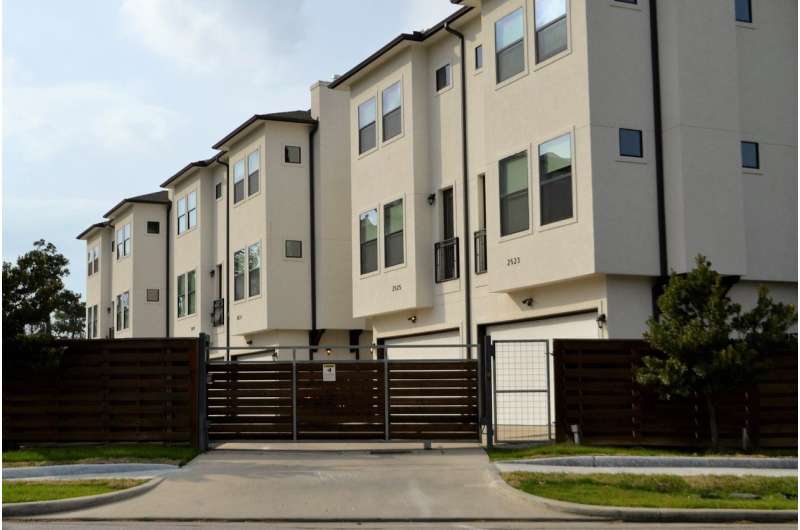In Sweden, municipal housing policy influences refugee reception

A new academic article, published in Frontiers in Political Science, analyzes how the Settlement Act is applied in Sweden’s municipalities. Housing is an important prerequisite for the socioeconomic integration of refugees. The Settlement Act was implemented in 2016 and entails that municipalities are obliged to receive refugees according to quotas.
By analyzing a survey conducted by the Swedish National Board of Housing, Building and Planning containing questions to all of Sweden’s 290 municipalities, the municipal housing policy is outlined and linked to various cases. The article presents a typology that divides up municipalities by how they themselves have reported working on housing issues based on the Settlement Act. For example, this could include providing a permanent housing contract or different forms of temporary housing solutions.
Major variations
Depending on the housing policy pursued in the municipality, the municipalities have the room to maintain, adapt or even prevent a long-term settlement of migrants with a refugee background. There are major variations between municipalities. How they have chosen to interpret the Act is linked to the nature of the municipality, for example, whether it is rural or suburban, the situation on the local housing market, previous experience of refugee reception in the municipality and the political persuasion of the municipal council.
“A restrictive refugee policy cannot always be explained by a lack of resources locally, such as a shortage of housing. In fact, many municipalities in which there is scant available housing still offer permanent housing alternatives, while municipalities with a large proportion of vacant flats choose to interpret the law restrictively,” says Emma Holmqvist, researcher in cultural geography at the Institute for Housing and Urban Research at Uppsala University.
Although the initial distribution of refugees may be fairer and more even between municipalities since the Settlement Act was introduced in 2016, old reception patterns have remained, with long-term settlement continuing to prove difficult, or even impossible, in some municipalities. In general, the municipalities that received the lowest number of refugees in relation to their population before 2016 have also implemented the most restrictive housing policy.
“There is also a problematic mismatch in the Swedish reception system, whereby permanent housing is provided more often in municipalities with weak labor markets. This creates major difficulties for newly arrived refugees, as a strong and stable position in the labor market is currently a requirement for obtaining a permanent resident permit in Sweden,” explains Holmqvist.
Emma Holmqvist et al, Resilience in Local Housing Policy? Liberal or Restrictive Policy Stances Among Swedish Municipalities Following the Great Migration in the Summer of 2015, Frontiers in Political Science (2022). DOI: 10.3389/fpos.2022.885892
Citation:
In Sweden, municipal housing policy influences refugee reception (2022, July 5)
retrieved 5 July 2022
from https://phys.org/news/2022-07-sweden-municipal-housing-policy-refugee.html
This document is subject to copyright. Apart from any fair dealing for the purpose of private study or research, no
part may be reproduced without the written permission. The content is provided for information purposes only.
For all the latest Science News Click Here
For the latest news and updates, follow us on Google News.

